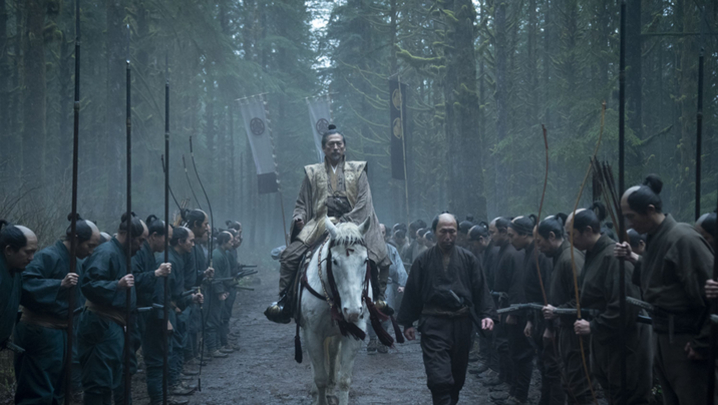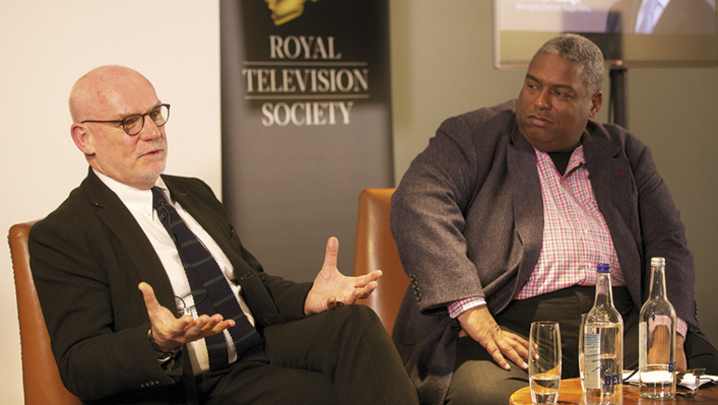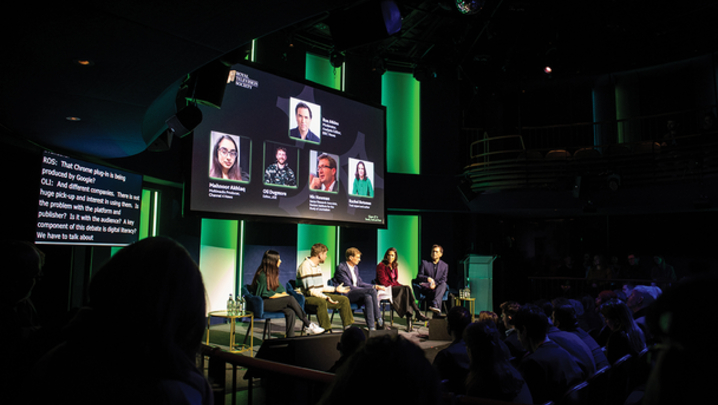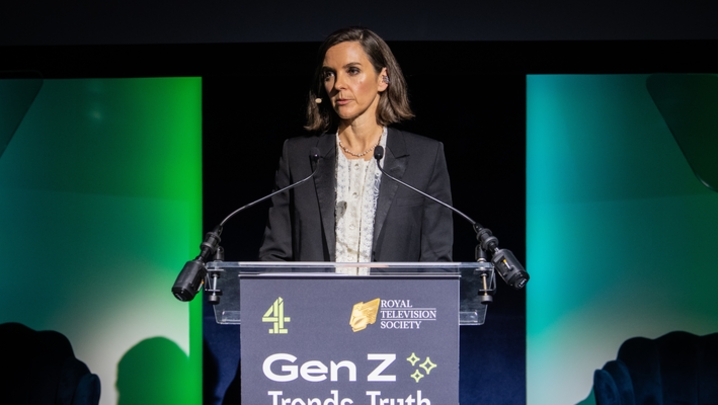On Channel 4, Sky and the BBC, foreign-language drama is booming. Stuart Kemp discovers how sub-titles became hip
Subtitles, sass and sex are the latest must-haves for broadcasters who are serious about satisfying their audiences. British viewers’ expanding appetite for foreign-language shows has taken in the mafia in Gomorrah on Sky Atlantic, the chilly Icelandic landscape of Trapped on BBC Four and the visceral drugs drama Prófugos on Channel 4’s new online service, Walter Presents.
The first episode of Walter Presents’ first show to be broadcast on Channel 4 – the cold war spy drama Deutschland 83 – garnered a consolidated audience of 2.5 million in January.
These are healthy numbers for a Channel 4 show and justify the investment that several broadcasters are making in subtitled drama.
“Over the coming years, you will see much more foreign drama shot on a scale that will have global appeal,” says Phil Edgar-Jones, Director of Sky Arts, a long-standing home for subtitled drama. “Many more people have cottoned on to thinking of it simply as really good storytelling, rather than niche, subtitled drama.”
Walter Presents epitomises the growing mainstream appeal of foreign-language drama. The venture is a partnership between Channel 4 and Global Series Network (GSN), an acquisitions and distribution company founded and managed by Walter Iuzzolino, Jason Thorp and Jo McGrath.
Born in Italy and raised on a diet of dubbed drama from around the globe, Iuzzolino is the Creative Director and force majeure behind the service. The TV enthusiast is a former commissioner at Channel 5 and Channel 4. His credits include hits such as Channel 4’s Embarrassing Bodies and Grand Designs.
He cashed in the equity stake he had as Creative Director of Betty, the independent production company bought by Discovery Communications in 2011. The deal was reported to be worth around £10m.
Iuzzolino decided to plough his savings and time into his passion for quality, foreign-language drama and build a library for GSN. He then hawked the idea of a dedicated service around London’s media village.
Channel 4 moved fastest. Chief Creative Officer Jay Hunt immediately saw the sense of investing in Iuzzolino’s passion.
At the time, Hunt said it would have been churlish to resist a package of hand-picked international programmes from someone who had locked himself into a room for two years to watch 3,500 hours of television. Together, they came up with the Walter Presents branding for the partnership.
This enabled Channel 4 to launch a service that it hoped would reflect the world back to a British audience and help to deliver the channel’s commitment to diversity.
Aiming to make it the British Library of quality, foreign-language entertainment, the ad-supported online service makes entire seasons available at once. Viewers can binge-view entire series, presented as “box sets” to stream. Other shows will premiere on the More 4 channel in a regular Friday-night slot, with the most prized acquisitions running on Channel 4 itself.
“In a world of Netflix, Amazon Prime and other pay-TV subscription services, Channel 4 is making a statement with this. It is mainstream and not elitist in any way,” Iuzzolino insists.
As with the shows offered by other UK broadcasters who have discovered the power of subtitled drama, Walter’s shows are eclectic and extend far beyond Nordic noir.
The Danish supernatural drama Heartless is set in a co-ed boarding school, complete with sexual tension, gore and scares. Clan is a Belgian black comedy about five sisters and an evil dead husband, while Sr Ávila, a show focused on an insurance man by day, hit man by night, hails from Mexico.
This growth in foreign-language drama began a decade ago, in 2006, when the BBC showed the Paris-set police and legal drama Spiral. Subsequently, 9:00pm on Saturday night became a regular BBC Four slot for international drama. The industry watched with interest.
“I thought that, if Spiral finds an audience, it would be time for me to make my foreign-language drama dream a TV reality,” say Iuzzolino.
"People have cottoned on to thinking of it simply as really good storytelling, rather than niche, subtitled drama"
The first season notched up around 150,000 viewers per episode but slowly became a critical and cult hit. The fifth season, broadcast in 2015, regularly attracted an audience of 1 million per episode.
“There has been a big [positive] change in the number of people watching these pieces and enjoying them,” says Sue Deeks, the BBC’s Head of Programme Acquisition.
The BBC recently finished running the third season of Scandinavian police procedural noir The Bridge, which consolidated at almost 2 million viewers. The broadcaster spent £66m on programme acquisition across all channels and outlets in 2014-15, up from £59m the previous financial year.
“There is more competition compared with 10 years ago because, at that time, people hadn’t realised the potential of these pieces,” says Deeks. “There’s a lot of programming out there.”
Sky Arts’ interest in imported subtitled drama goes back several years. Hard, a French comedy about a woman who inherits her husband’s porn empire, aired in 2013. The channel also snapped up the first two seasons of Danish family saga The Legacy and will be home to the third and final season.
“One of the challenges for Sky Arts is to find [good quality], long-running series,” says Edgar-Jones. “A lot of what we do is glorious one-offs or in three parts. Therefore, to have something that is a consistent series offering, that gets people to come to the channel and try other things, is efficient for the channel.”
Sky Arts’ highest-rating subtitled success to date is Occupied, a glossy and slick thriller about Russia invading Norway to take control of the country’s oil reserves.
Barb figures show that it hovered around the 100,000 mark, a healthy tally for the channel.
“We found that we got small, but really passionate, audiences that would get into the programmes,” says Edgar-Jones. “As a broadcaster working with a fairly limited acquisitions budget, it was pretty efficient to buy in.”
Not everything works. “We dipped our toe into foreign comedy, too, with Norwegian comedy Dag. But it’s hard to translate foreign comedy for a UK audience,” admits Edgar-Jones.
Next up is a largely untapped reservoir of quality programme from Asia. Expect shows from South Korea, Japan and Malaysia to hit the radar soon.
Iuzzolino counsels buyers to watch entire series, not just pilots, because shows can turn out to be duds. His three criteria for choosing – a blockbuster hit in the country of origin, preferably award-winning and blessed with critical acclaim – guide his choice.
What is now beyond doubt is that subtitles are no longer an audience turn-off. They may even inspire greater concentration. After all, you can’t be distracted by your phone or tablet. If you look away you won’t know what the hell is going on.
“A lot of what we do is written-word stuff, in terms of how we communicate with texting and email, so people have got used to it as part of the experience,” says Edgar-Jones.
Deeks suggests that “it is also akin to people reading the ticker along the bottom of news bulletins. People are quite used to looking at different parts of the screen.”
All of this is important if a beautiful, but troubled, supernatural Danish predator is trying to suck you into their world of sex, sass and subtitles.







